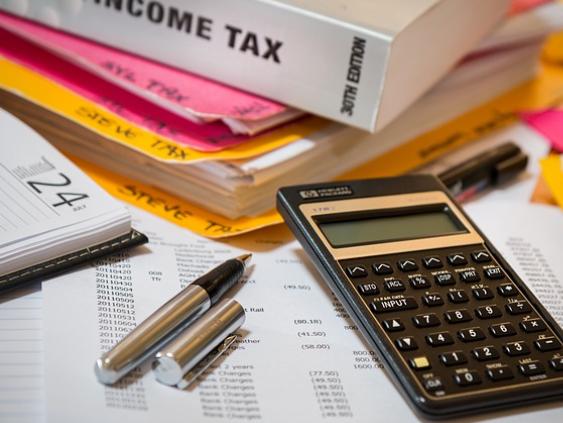Tax – a word feared by the biggest billionaires to the youngest teens. Why? Because billionaires know a little too much about them (and what it can do to them. No we ain’t hinting at any, but yes you’re thinking right 😉 and teens because they know nearly nothing about it because well, it’s intimidating. True. But here’s the thing.
Taxes are scary but only pseudo scary. Once you get the hang of them, it’s an easy peezy lemon squeezy road down there. And this, this article right here, might be a good place to start. By the end of this read, you’ll be familiar and thorough with Taxes and hopefully free of the horror.
So, Taxes aka Pocket Money of the Government!
Imagine giving pocket money to the government. Does this have your imagination running? Sounds fun right? That’s what taxes are. We, as citizens, give this pocket money to the government– except the twist being that the money is to provide for our needs, welfare and benefits.
More formally and according to the books, Taxes are a compulsory fee amount charged by the governments across the world. It is billed to every earning citizen on a range of income streams, for example salary, property, rent etc.
This fee is essentially collected to maintain and raise the standard of living and furthermore boost the economy. Directed towards the general development of the nation, it is to provide for and fund the public and public related services.
But while these fees may be termed ‘mandatory’ by the law, and as citizens it is a responsibility to pay taxes honestly and on time, looking at them as an ‘obligation’ is a rather unpleasant thought. How about you think of it as something that is for the benefit of you only? Because well it is. Remember- “for the people and by the people”. Also, doesn’t giving pocket money to the government to better your life as a citizen of the country also kinda feel powerful? Haha!
Although it should be remembered that paying taxes goes a tad far than just being a matter of conscience. Tax Evasion, i.e. the acts of hiding, underpaying, avoiding/not-paying at all or attempts to falsely reduce the tax amount to be paid is illegal in India and has penalties mentioned under the Income Tax Act.
Paying our due taxes makes us a respectful, responsible citizen of the country, allowing us to be rightly vocal about our welfare concerns and demands and hold the ones in power accountable for the same.
Jokes aside, taxes help run and build the nation. All the social welfare, healthcare improvements, education, infrastructure, transportation network, schemes and subsidies, and everything in between, all of it rely on these taxes. So now we’re looking at taxes as not just obligatory evil things eating up our cash, but as something that does some good. Progress!
Peak into the Past
But where did these taxes popped up from?
Well, taxes aren’t a recent birth. Beginning of taxes or the system of taxation, that too a well-planned one, was seen even before the primitive and ancient times. Back then, taxes were primarily charged on land, silver and gold, agricultural & forest produces and more and were paid in the form of gold coins, cattle, raw materials, salt etc.
Types of Taxes
Now that we’re slightly more sure about taxes, let’s dig a little deeper, shall we?
While taxes branch out into various types, the two broad categories are Direct and Indirect Taxes.
As the name goes Direct Taxes are directly paid by a particular individual and can’t be transferred to any other individual. Under this falls:
- Income Tax
- Corporate Tax
- Gift Tax
- Wealth Tax
- Capital Gains etc.
On the other hand, Indirect Taxes are the one on goods and services and are collected by the seller. It’s the added amount in the price of a product/service. The MRP of any product is in fact inclusive of the tax, which is now and you must have heard about it quite a lot already, GST – Goods and Services Tax. So guess what, you’ve already been paying taxes. On pizza you ate last week, the PS you’re on right now and all things more.
Now while all the taxes are essential to understand and all, there’s this, that can well, be called the Baap of all, (guessed it yet?) …Income Tax.
The Baap of all Taxes: Income Tax
Though the term is pretty easy and self-explanatory, it often has people in sweats. Income tax is the tax billed on the financial income generated by each individual. So simply, anyone who earns, pays (must pay) income tax.
Income Tax comes under the Income Tax Act of 1961, which states that tax is charged on income generated from any source – such as salaries, property, profits, investments, business and more, and is fundamentally the charging authority covering everything taxation related.
To understand this further, we gotta first familiarise ourselves with a few terms.
So you must have seen all adults around you a little stressed, almost going haywire around the end of March, well that is the end of a Financial/Previous Year.
A financial year, also called the previous year, is a 12 months-long period beginning on 1st April and ending 31st March on which the tax year closes.
Another such term is Assessment Year. This one is the year following to the financial year when the assessment or evaluation of the financial year’s (previous year’s) income will be done.
For a quick example, if the Financial Year is 1st April 2020 – 31st March 2021, then the Assessment Year is 1ST April 2021 – 31th March 2022.
So the drill goes such as, at the end of every financial year, one files Income Tax Return (ITR) which is basically to file information about the income and the generation of the due tax. The amount of Taxable Income is generated when Deductions (explaining this in 3..2..1) are subtracted out of the sum of all incomes i.e. the Gross Income.
Deduction is the deduction or reduction of tax. These are the incentives, tax credits or claims resulting in reduced payable tax. It’s the good stuff that lowers the amount one has to pay! Some common examples are Public Provident Fund (PPF), House Rent Allowance (HRA), Employee Provident Fund (EPF) and more.
And Taxable Income is nothing but the actual income on which the tax payable will be calculated.
All this information may look heavy, and not to scare you but there’s a lot more to it. But this pretty much an overview of it and if you read it once again, you’ll actually find it boiling down to this one small formula:
Gross Income – Deductions = Taxable Income
Where, Gross Income = income from salaries + rents + profits + saving account interest etc.
And Deductions = PPF, EPF, etc.
Documents Checklist: Tick!
Now while the theory part of Tax (hopefully) sounds simple to us, the process requires quite some careful attention because we do have a few documents involved.
This includes:
- Form 16: certificate issued by employer containing details of Tax Deducted at Source (TDS)
- Form 16A: TDS certificate for income other than salary (Eg. returns on investments, mutual funds, etc.)
- Form 16B: TDS certificate for sale of any property or land
- Salary Slip: a document provided by employer containing a breakdown and components of salary
- Equity Linked Savings Schemes (ELSS)
- Systematic Investment Plan (SIP)
- Bank Statement and Passbook
- PAN Card
And more depending upon sources of income. No, you don’t need to understand each of these right now, but let’s focus on this particular more-familiar one, PAN Card.
Permanent Account Number (PAN) Card is as it says a ‘permanent’ card or one that is valid for a lifetime and is an essential when it comes to filing ITR. But what is it actually?
PAN Card is issued by the Income Tax Department and serves them the purpose of keeping track of every financial transaction of a tax-paying individual. Containing a 10-digits alphanumeric number unique to each individual, it records all financial and tax related information and further prevents any tax evasion. Since it is unique to each, no two people can have the same PAN number and hence it acts as a proof of identity across the nation.
Conclusion
So concluding it, (yes, finally) taxes is heavy stuff and well, lots to swallow in one go. But it can also be an interesting mind puzzle kinda thing that can be a little fun. (okay, the adults around you may not as much agree on taxes being ‘fun’, but they sure are interesting!) Taxes are extremely essential – something a country can’t do without, and understanding them won’t only benefit the nation but you, a citizen of the nation, as well.











